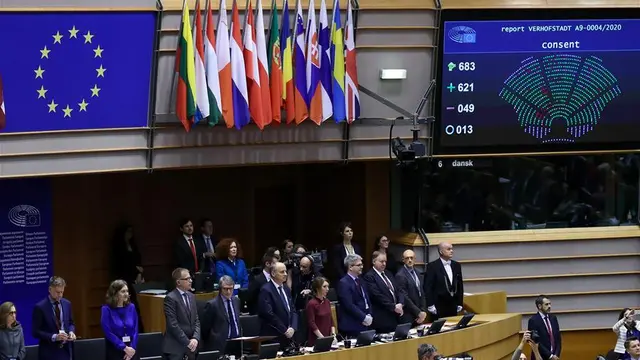The monthly plenary had already been moved to Brussels instead of Strasbourg this week as a precautionary measure against the spread of Coronavirus.
The thinking behind the decision is, according to the spokesperson, "is to strike a balance between the Parliament's institutional responsibilities and, on the other hand, its contribution to assist during the 'containment phase' of the Coronavirus outbreak.
On the agenda are statements on International Women's Day, a debate on the Coronavirus outbreak itself, the migration situation on the Greece-Turkey border and the EU's Multiannual Financial Framework negotiations.
The spokesperson confirmed that the potential of the next plenary, which is scheduled to start on 30 March, was also discussed at the Conference of President's meeting.
The use of remote voting was also raised, but "there are no technical ways to use it at this moment in time and so there are no votes this week, just debates".
In the meantime, visits to Parliament by outside groups and individuals have already been seriously curtailed.
Among those calling for all parliamentary activities to cease was Renew Europe leaderDacian Ciolos, a former Romanian PM, who, in an email to Parliament's President David Sassoli on Sunday evening, urged him to "suspend" the entire session or "substantially reduce its agenda to what is essential."
Several MEPs from Italy's 5Star movement made a similar demanding another letter to Sassoli, calling for "all parliamentary activities to be suspended with immediate effect until the health risks are under control."
MEPs on Tuesday will assess EU and national efforts to contain the COVID-19 virus from spreading and the role of the new EU Coronavirus response team in a debate with European Commission President Ursula von der Leyen.
The team coordinates with the Member States in sharing information, assessing needs and ensuring a coherent, EU-wide response.
(CGTN)
 简体中文
简体中文






